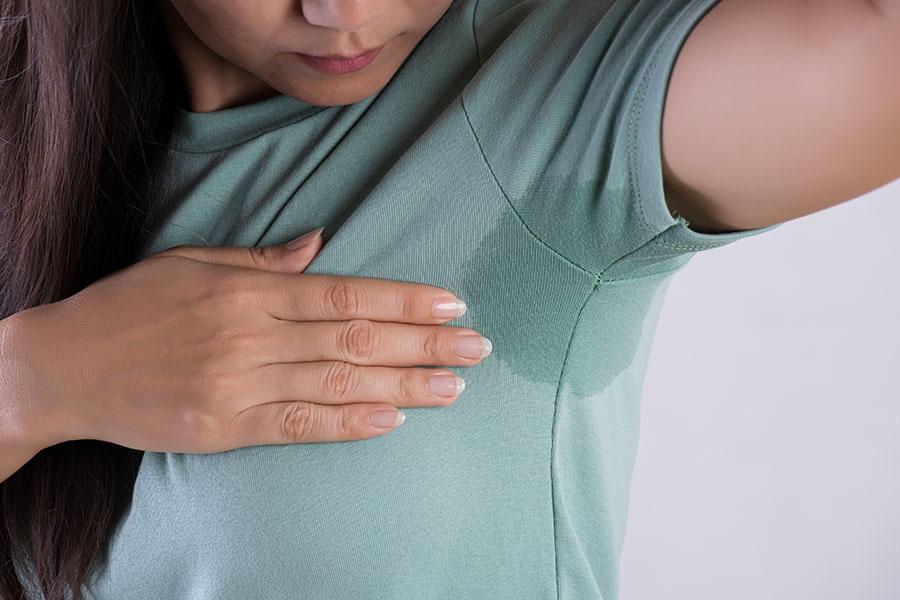What Is Hyperhidrosis?
The body sweats naturally to cool itself, but when someone has hyperhidrosis, the body perspires even when it does not need cooling. Someone with hyperhidrosis may drip with sweat from more than one area of the body.
Causes vary and depend on the type of hyperhidrosis.
-
Primary focal hyperhidrosis – May be inherited and start in childhood or adolescence
-
Secondary generalized hyperhidrosis – Is triggered by a medical condition or medication
Symptoms
Symptoms include:
-
Sweating without exertion – Beads of sweat or moist clothing while sitting or not moving
-
Sweating that disrupts daily activities – Sweat that makes it difficult to turn a doorknob or drips on to work or school papers or computers
-
Sweating on both sides of the body – Excessive sweating on hands, feet, and armpits (primary focal hyperhidrosis)
-
Sweating of the entire body – (secondary generalized hyperhidrosis)
-
Sweating during sleep – (secondary generalized hyperhidrosis)
-
Skin infections – May increase likelihood of skin infections such as athlete’s foot or jock itch
Treatment Options
Dermatologists determine the best treatment plan depending on the type of hyperhidrosis.
-
Antiperspirants – Antiperspirants block sweat glands and curb the production of perspiration. They are applied topically to the hands, feet, hairline and underarms.
-
Iontophoresis – A medical device passes mild electric currents through a shallow pan of water and through the skin’s surface. A typical regimen starts with 15- to 40-minute sessions three times a week. This is a home treatment for hands and feet.
-
Botox injections – Botox blocks a chemical in the body that stimulates sweat glands. A low dose is injected into the hands, feet or underarms.
-
Prescription medications – Anticholinergic drugs block a chemical that stimulates sweating in the sweat glands. Beta blockers and benzodiazepines ease anxiety and are best for individuals who sweat profusely in stressful situations.
-
Surgery – Removal of underarm sweat glands in a dermatologist’s office is a permanent solution and is recommended as a last resort. Sympathectomy is a major procedure performed by a surgeon to block nerve signals to sweat glands. It’s primarily used to treat hands.
-
miraDry – A device delivers electromagnetic energy to the underarms, eliminating glands that produce excessive sweat and glands that produce foul-smelling odors.
Ready for an Appointment?
If you're experiencing signs or symptoms of excessive sweating, schedule an appointment or call 800-TEMPLE-MED (800-836-7536) today.
Find a doctor who can help diagnose and treat excessive sweating.
